
SAGE was founded in 1965 by Sara Miller McCune to support the dissemination of usable knowledge by publishing innovative and high-quality research and teaching content. Today, we publish over 900 journals, including those of more than 400 learned societies, more than 800 new books per year, and a growing range of library products including archives, data, case studies, reports, and video. SAGE remains majority-owned by our founder, and after Saras lifetime will become owned by a charitable trust that secures our continued independence.
Los Angeles | London | New Delhi | Singapore | Washington DC | Melbourne
God as
Political Philosopher

By the Same Author
Why I Am Not a Hindu: A Sudra Critique of Hindutva Philosophy, Culture and Political Economy (1996)
Buffalo Nationalism: A Critique of Spiritual Fascism (2004)
Post-Hindu India: A Discourse in Dalit-Bahujan, SocioSpiritual and Scientific Revolution (2009)
Untouchable God: A Novel (2013)
From a Shepherd Boy to an Intellectual: My Memoirs (2018)
God as
Political Philosopher
Buddha's Challenge to Brahminism

Kancha Ilaiah Shepherd
Copyright Kancha Ilaiah Shepherd, 2019
All rights reserved. No part of this book may be reproduced or utilised in any form or by any means, electronic or mechanical, including photocopying, recording, or by any information storage or retrieval system, without permission in writing from the publisher.
First published by SAMYA, an imprint of Bhatkal and Sen, 16 Southern Avenue, Kolkata 700026, in 2000; reprinted 2001, 2004, 2010, 2012.
This edition published in 2019 by

|
SAGE Publications India Pvt Ltd B1/I-1 Mohan Cooperative Industrial Area Mathura Road, New Delhi 110 044, India www.sagepub.in | Samya 16 Southern Avenue Kolkata 700026 www.stree-samyabooks.com |
SAGE Publications Inc 2455 Teller Road Thousand Oaks, California 91320, USA |
SAGE Publications Ltd 1 Oliver's Yard, 55 City Road London EC1Y 1SP, United Kingdom |
SAGE Publications Asia-Pacific Pte Ltd 18 Cross Street #10-10/11/12 China Square Central Singapore 048423 |
Published by Vivek Mehra for SAGE Publications India Pvt Ltd, typeset in 10/12 pts PalmSprings by Zaza Eunice, Hosur, Tamil Nadu, India.
Library of Congress Cataloging-in-Publication Data Available
ISBN: 978-93-532-8260-8 (ePub)
SAGE Samya Team: Amrita Dutta, Guneet Kaur and Aritra Paul
To all those monks who died
in the defence of spiritual democracy
under the onslaught of many fascisms.
Thank you for choosing a SAGE product!
If you have any comment, observation or feedback,
I would like to personally hear from you.
Please write to m e at
Vivek Mehra, Managing Director and CEO, SAGE India.
Bulk Sales
SAGE India offers special discounts
for purchase of books in bulk.
We also make available special imprints
and excerpts from our books on demand.
For orders a nd enquiries, write to us at
Marketing Department
SAGE Publications India Pvt Ltd
B1/I-1, Mohan Cooperative Industrial Area
Mathura Road, Post Bag 7
New Delhi 110044, India
E-mail us at
Subscribe to our mailing list
Write to
This book is also available as an e-book.
C ONTENTS
People have helped me generously and I would like to offer my thanks to them. While undertaking my Ph.D. at the Department of Political Science, Osmania University, when I began to be interested in Buddha's political thought, my supervisor, Rama S. Melkote, was unstinting with her advice and criticism and also shared her insights as a woman activist. In writing this book, I have delved into my Ph.D. thesis. I find that Dr. Melkote's theoretical and experiential understanding has enriched the chapter on women (). Susie Tharu read the earlier version and gave her valuable comments.
I am thankful to the late Debiprasad Chattopadhyaya and Partha Chatterjee with whom I discussed the contents of this book in the summer of 1990. My thanks are also due to Gopal Guru, R. V. R. Chandrashekhar Rao, K. Seshadri and the late Moin Shakir who gave some useful suggestions. I thank my friend Dr. Simhadri whose critical remarks shaped this book at its various stages. Several of my colleagues in the Department of Political Science rendered useful helpI thank all of them.
In the course of my research I drew on the resources of the Osmania University Library, the National Library of Calcutta, the library of the Anveshi Women's Research Centre, Hyderabad, and the Nehru Memorial Museum and Library, New Delhi. I am grateful to all the staff members of these libraries. I especially wish to thank Professor Ravindra Kumar, the then Director of the Nehru Memorial Museum and Library, for his cooperation and encouragement in allowing me to use part of my fellowship period from 1994 to 1997 to rework the text.
Rimi B. Chatterjee, my editor at Samya, did a remarkable job of improving and reworking the manuscript's framework and language. Dr. Amit Jyoti Sen helped me on the Bibliography and I thank them both. I also thank my sister-in-law, K. Bharathi, brother K. Kattaiah, niece Rama, nephews Krishna Kanth, Naresh and Surender. Without their assiduous assistance in fulfilling all kinds of needs at home I would not have been able to acquire my doctorate or write this book. I am grateful to Mr. Ramalingam of the Department of Economics and Ms Shanta, stenographer in the office of the Dean of Social Sciences, for their data entry and typing at various stages of the work.
'As to dictatorship the Buddha would have none of it. He was born a democrat and he died a democrat. At the time he lived there were 14 monarchical states and 4 republics. He belonged to the Sakyas and the Sakyas' kingdom was a republic. He was extremely in love with Vaishali which was his second home because it was a republic.'
Dr. B. R. Ambedkar
Writings and Speeches, vol. 3, p. 451

 HE CONTEMPORARY INDIAN socio-political situation is an explosive one in many respects. As education spreads to sections of society which were denied it for centuries, their demands on the Indian political system are increasing; their struggles are taking new forms. The roots of every struggle penetrate into times well beyond the present, and it is necessary to understand these roots in order to strengthen the struggle and turn it into a movement capable of influencing the future. Dialectical processes involving the resolution of contradictions in a society lead to change, either peacefully or violently. The politics of such change are complex. The social groups involved, the ideologies of contending groups/classes/castes, the material conditions of society may all indicate its directionhowever, it is possible that the change itself may be more apparent than real, for the dominant class/caste and its ideology may coopt or incorporate its opposite as a strategy of survival. Hindu society dominated by brahminical ideology has survived to this day precisely by such strategies. There have been many movements that have questioned the caste-ridden, hierarchical Hindu social structures and brought about important changes, but none has effected a substantial change in the power relations of this society. Buddhism, which emerged as a response to Brahminism, eventually faded away in its country of origin, while becoming a political force to reckon with in some South Asian and South-East Asian countries. The contemporary Dalit movement (the neo-Buddhist movement) is not so much a movement to revive Buddhism as to challenge the caste systemto give a political identity to the Dalitbahujans (the Scheduled Castes, Scheduled Tribes and Other Backward Classes), the subalternsin their struggle for survival, assertion and power.
HE CONTEMPORARY INDIAN socio-political situation is an explosive one in many respects. As education spreads to sections of society which were denied it for centuries, their demands on the Indian political system are increasing; their struggles are taking new forms. The roots of every struggle penetrate into times well beyond the present, and it is necessary to understand these roots in order to strengthen the struggle and turn it into a movement capable of influencing the future. Dialectical processes involving the resolution of contradictions in a society lead to change, either peacefully or violently. The politics of such change are complex. The social groups involved, the ideologies of contending groups/classes/castes, the material conditions of society may all indicate its directionhowever, it is possible that the change itself may be more apparent than real, for the dominant class/caste and its ideology may coopt or incorporate its opposite as a strategy of survival. Hindu society dominated by brahminical ideology has survived to this day precisely by such strategies. There have been many movements that have questioned the caste-ridden, hierarchical Hindu social structures and brought about important changes, but none has effected a substantial change in the power relations of this society. Buddhism, which emerged as a response to Brahminism, eventually faded away in its country of origin, while becoming a political force to reckon with in some South Asian and South-East Asian countries. The contemporary Dalit movement (the neo-Buddhist movement) is not so much a movement to revive Buddhism as to challenge the caste systemto give a political identity to the Dalitbahujans (the Scheduled Castes, Scheduled Tribes and Other Backward Classes), the subalternsin their struggle for survival, assertion and power.
Next page
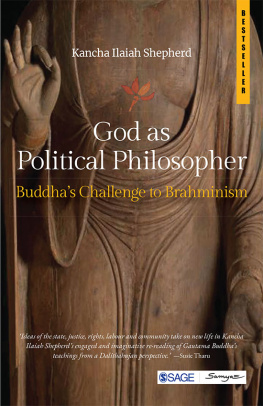
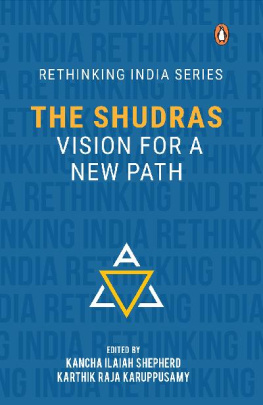
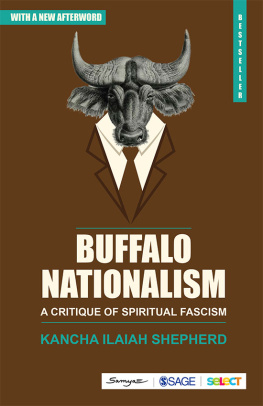
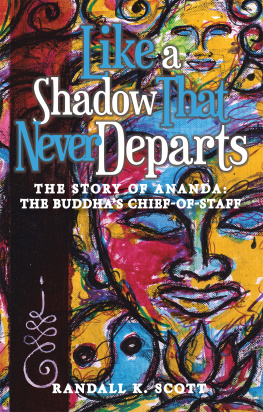
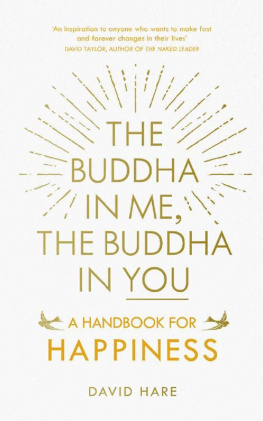
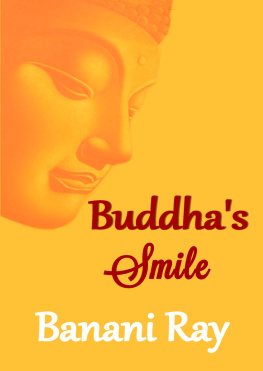

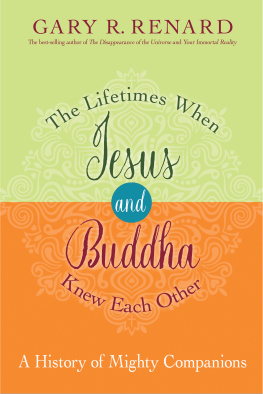
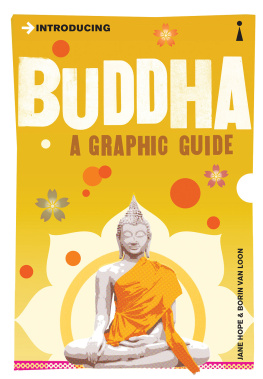


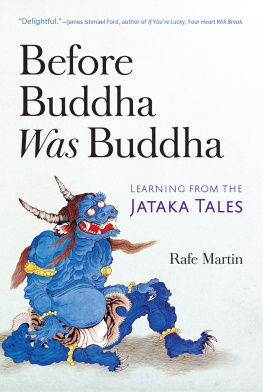







 HE CONTEMPORARY INDIAN socio-political situation is an explosive one in many respects. As education spreads to sections of society which were denied it for centuries, their demands on the Indian political system are increasing; their struggles are taking new forms. The roots of every struggle penetrate into times well beyond the present, and it is necessary to understand these roots in order to strengthen the struggle and turn it into a movement capable of influencing the future. Dialectical processes involving the resolution of contradictions in a society lead to change, either peacefully or violently. The politics of such change are complex. The social groups involved, the ideologies of contending groups/classes/castes, the material conditions of society may all indicate its directionhowever, it is possible that the change itself may be more apparent than real, for the dominant class/caste and its ideology may coopt or incorporate its opposite as a strategy of survival. Hindu society dominated by brahminical ideology has survived to this day precisely by such strategies. There have been many movements that have questioned the caste-ridden, hierarchical Hindu social structures and brought about important changes, but none has effected a substantial change in the power relations of this society. Buddhism, which emerged as a response to Brahminism, eventually faded away in its country of origin, while becoming a political force to reckon with in some South Asian and South-East Asian countries. The contemporary Dalit movement (the neo-Buddhist movement) is not so much a movement to revive Buddhism as to challenge the caste systemto give a political identity to the Dalitbahujans (the Scheduled Castes, Scheduled Tribes and Other Backward Classes), the subalternsin their struggle for survival, assertion and power.
HE CONTEMPORARY INDIAN socio-political situation is an explosive one in many respects. As education spreads to sections of society which were denied it for centuries, their demands on the Indian political system are increasing; their struggles are taking new forms. The roots of every struggle penetrate into times well beyond the present, and it is necessary to understand these roots in order to strengthen the struggle and turn it into a movement capable of influencing the future. Dialectical processes involving the resolution of contradictions in a society lead to change, either peacefully or violently. The politics of such change are complex. The social groups involved, the ideologies of contending groups/classes/castes, the material conditions of society may all indicate its directionhowever, it is possible that the change itself may be more apparent than real, for the dominant class/caste and its ideology may coopt or incorporate its opposite as a strategy of survival. Hindu society dominated by brahminical ideology has survived to this day precisely by such strategies. There have been many movements that have questioned the caste-ridden, hierarchical Hindu social structures and brought about important changes, but none has effected a substantial change in the power relations of this society. Buddhism, which emerged as a response to Brahminism, eventually faded away in its country of origin, while becoming a political force to reckon with in some South Asian and South-East Asian countries. The contemporary Dalit movement (the neo-Buddhist movement) is not so much a movement to revive Buddhism as to challenge the caste systemto give a political identity to the Dalitbahujans (the Scheduled Castes, Scheduled Tribes and Other Backward Classes), the subalternsin their struggle for survival, assertion and power.